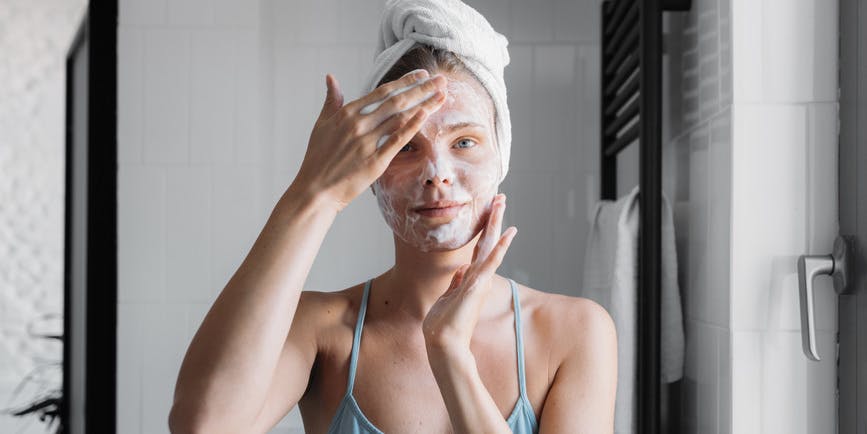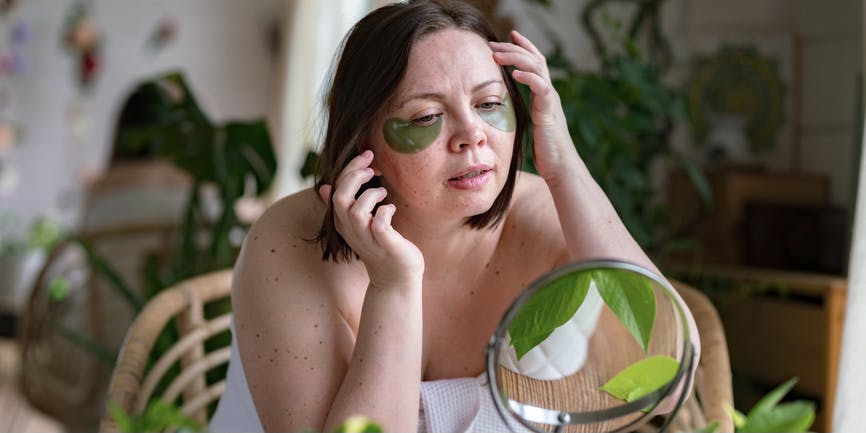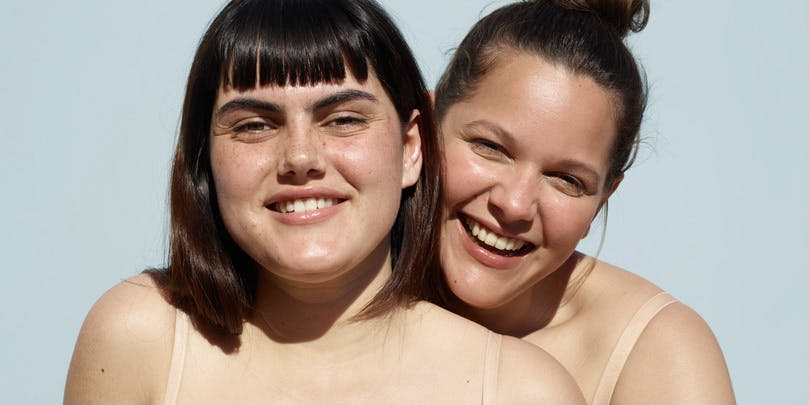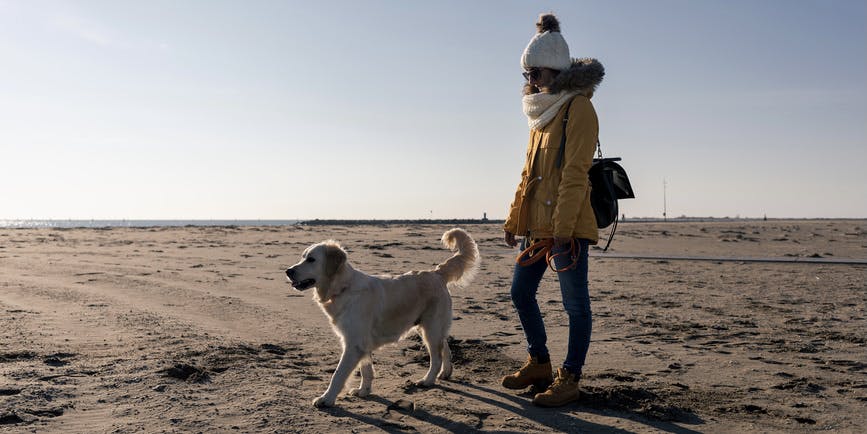
Is hard water or an overeager routine harming your skin? Here’s how to tell.

People were feeling things last week and our brains will be distracted for a while to come. So we’re back with more tips to help you destress. But this time, we’re calming down via our body’s largest organ—the skin.
Learn how hard water + an overeager routine can cause harm. Plus, how steam does more than loosen tight muscles. But first, freshen up with…
Your Checkup:
- Aromathize, cold plunge + more SAD coping tips
- Ways to relieve stress if you can’t sit + breathe
- Top apps for people w/ ADHD to organize + simplify
- Shop top 22 HSA/FSA-eligible skincare products
- Plus, how to set up an HSA/FSA this season
- Um, a tick gave birth inside this woman’s ear!!
- Swap Vaseline for top barrier-repair products
- If you’re not sore post-workout, was it effective?
- Take comfort from healthy, peak fall produce
Primary Care
Giving your skin too much love?

Like our gut, our skin contains a microbiome that supports our immune system. As reported in HuffPost, slathering on too many products or those with strong ingredients (like acids and AHAs) can throw that microbiome off.
How can you tell if you’re overdoing it?
Your skin may feel extra-dry, scaly or super-sensitive in specific areas. Or you might develop acne, discoloration spots or a bacterial, viral or fungal infection. And if you already have an inflammatory condition like psoriasis, too many products may worsen symptoms.
Worried? Try paring down to gentle cleanser, hydrating moisturizer and sunscreen. Or learn more about online fungal infection treatment with Dr. B.
How to soften the (hard water) blow

Hard water contains high levels of minerals like calcium + magnesium.
According to Real Simple, chemicals form and coagulate when the minerals combine with the fatty acids in soap. Instead of rinsing clean, glassware looks cloudy, laundry feels stiff, and our skin can suffer clogged pores, acne and eczema flares.
So if your skin feels dry + chalky or your scalp feels itchy and not entirely clean after the shower, read the article for water-softening tips or get prescription eczema cream online with a Dr. B $15 medical consultation.
A 7-step steam reset

A soft water steam is excellent for skin, according to dermatologists in Byrdie.
It opens pores so dirt can’t get stuck. It increases sebum, an oily substance that hydrates and prevents bacteria from spreading (which can trigger acne). It encourages blood flow, pumping oxygen to the surface so we get that coveted glow. And it opens the sinuses, so we breathe better!
You shouldn't steam if you have an inflammatory condition like rosacea—and always check with your provider. Otherwise, you don’t need a fancy device to steam at home. Head to Byrdie for a customizable 7-step routine or check out the online rosacea treatments Dr. B offers with a $15 consultation.
Healthcare 911
Should we be worried about bird flu? (HuffPost). Since 2022, H5N1 spread from wild birds to at least 46 humans. Transmission between humans has not occurred. But blood tests on exposed farm workers showed over 14% had H5N1 antibodies, revealing higher infection rates than presumed. Widespread surveillance + testing are virtually nonexistent, which gives the virus more time to spread and mutate. So we'll see.
Will Trump have a new opening to repeal Obamacare? (NYTimes). The president-elect hasn't outlined his plans for the Affordable Care Act. But analyzing comments, experts believe he'll let the Biden Administration's Marketplace subsidies expire at the end of 2025. The subsidies lowered patient premiums, which almost doubled enrollment over 4 years. With the expiration, 20 million people will face higher premiums, and 3.4 million are projected to lose coverage entirely.
What can Trump and RFK Jr. actually do on health care? (STAT). Of all the “What could happen to healthcare?” roundups of last week, read this one. Covering drug ads, vaccines, fluoride health, the CDC + FDA, sexual + reproductive health and pandemic preparedness, it outlines where the federal government has the power to direct change—and where it doesn’t.
Sign up for the free Dr. B newsletter for a weekly report on the latest in healthcare + research-based advice for staying healthy and mentally well.


